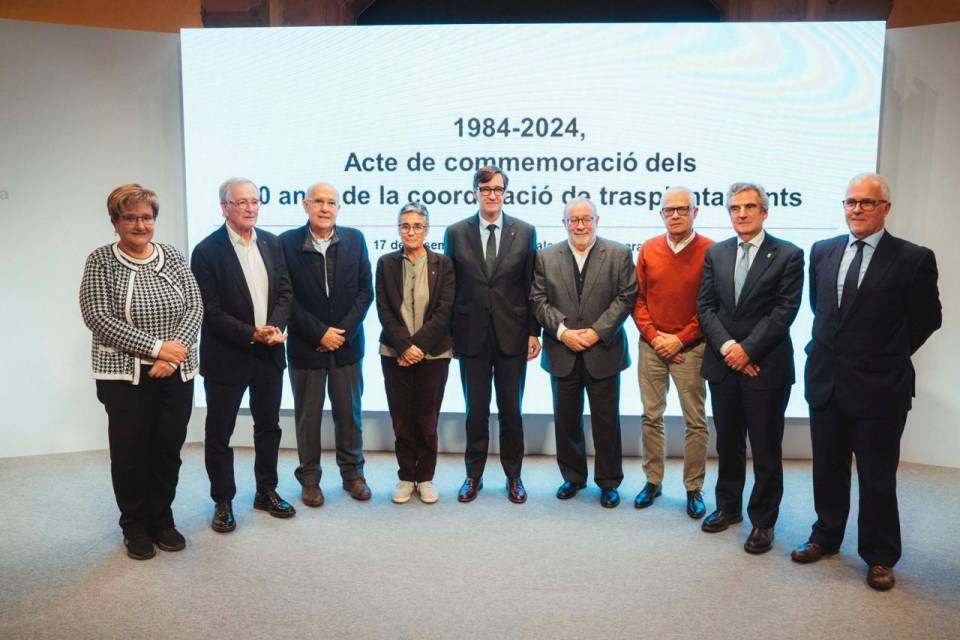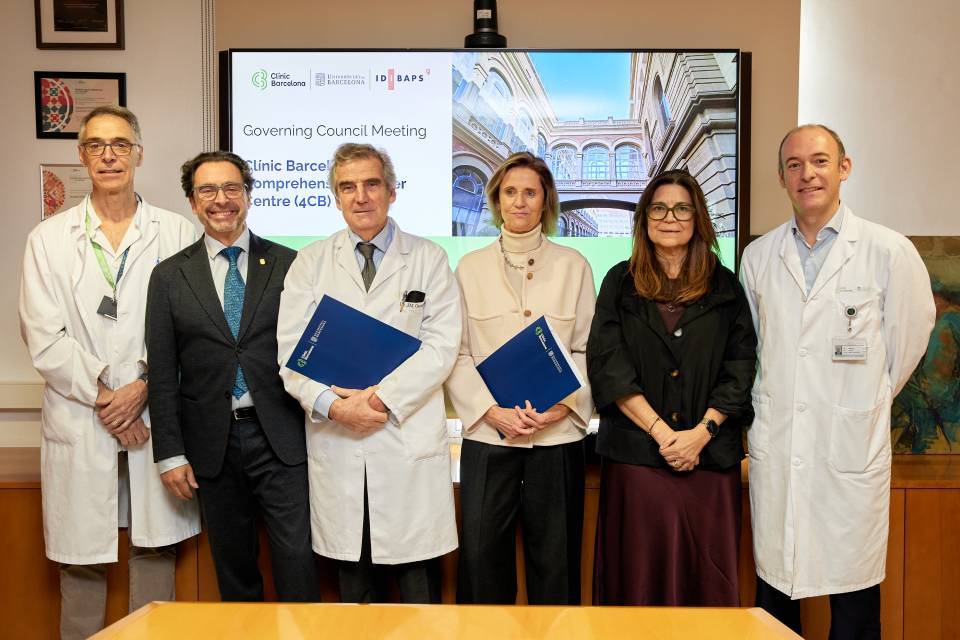The Palau de la Generalitat de Catalunya hosted the ceremony to commemorate the 40th anniversary of transplant coordination. The event, chaired by the President of the Generalitat, Salvador Illa, was attended by the Catalan Minister of Health, Olga Pané, the Director General of the Hospital Clínic Barcelona, Dr. Josep Maria Campistol, the Director of the Catalan Transplant Organization (OCATT), Dr. Jaume Tort, and the former Director of the Transplant Programme at the Hospital Vall d’Hebron, Dr. Teresa Pont.
Catalonia has been a pioneer in the majority of transplants in Spain: the first cornea transplant was performed in 1926, the first kidney transplant (at the Clínic) was carried out in 1965, and the first pancreas transplant (at the Clínic) was performed in 1983, followed a year later by liver and heart transplants. That same year (1984), the Ministry of Health launched the Transplant Programme, an innovative and pioneering initiative in Spain, which sought to bring order to the incipient world of non-renal transplants.
Among other things, it defined the role of the hospital transplant coordinator, who is responsible for the donation process in each of the hospitals authorized to obtain donors. This figure has been and still is fundamental, and is considered the key to the success of what is known as the Spanish Transplantation Model, which has been exported all over the world. A figure created in Catalonia.
The aim of this event was to celebrate an initiative that has saved thousands of lives, thanks to the motivation and collaboration among professionals from different disciplines, the complicity and support of the Ministry of Health and, above all, the generosity and altruism of the donors and their families.
The President of the Generalitat de Catalunya, Salvador Illa, stressed that, “ethical criteria made people trust and donate organs", criteria that, according to Illa, are “independent of social status, independent of the each person’s economy”, where everyone “has access based on scientific and medical criteria”.
Meanwhile, according to Dr. Josep Maria Campistol, Director General of the Hospital Clínic de Barcelona, “today is a day of recognition and gratitude. Transplants improve the lives of patients and are possible thanks to the commitment of professionals, the support of the administration and the altruism of donors and relatives. Without donors there are no transplants”.
The Clínic leader in transplants
The Hospital Clínic Barcelona has performed 9,047 transplants since the start of transplant coordination in Catalonia, 40 years ago now. They have carried out 698 pancreas transplants, 2,605 liver transplants, 5,284 kidney transplants and 460 heart transplants (data as of 30 November 2024).
On 27 July 1965, doctors Josep Maria Gil-Vernet and Antoni Caralps carried out the first kidney transplant in Spain and, on 3 February 1983, the first pancreas transplant in Spain. The operation was led by doctors Josep M. Gil-Vernet and Laureano Fernández-Cruz.
In 1985, the first Transplant Coordination Team in Spain was created at the Hospital Clínic Barcelona. Over time, this team became a necessity for the development and growth of organ and tissue transplants. The care work of the Transplant Donation and Coordination Section facilitates the activity of transplant programmes thanks to the increase in donations, making it possible to offer transplants to a larger number of patients.
The transplant coordination is made up of a multidisciplinary team in order to have the maximum number of donors for transplant services and for the Blood and Tissue Bank. It facilitates and coordinates the multi-organ harvesting, the preservation of organs, and their distribution and transplantation, while supporting families throughout the entire process.




